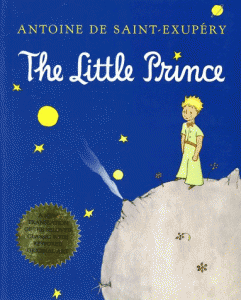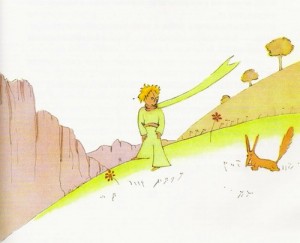by Naomi L. | January 31, 2014 | Flash Fiction, J.C. Wolfe's Writing |
(What If? Exercise: Read the description here.)
That game always took me anywhere I wanted to go.
I couldn’t remember a time when I was happier.
Capturing the clouds was all I ever wanted.
So now I’m following those lifelong dreams.
I will discover the real world.
With a camera beside me.
The sky’s the limit.
Follow the sun.
Look up.
Click.
This is another piece I wrote based on What If? Exercise 93: “Ten to One”. The exercise is to write a 55-word story in which the first sentence has ten words, the second has nine, etc., until the last sentence has only one word. The objective is to show that precision and thrift in writing can produce surprisingly powerful results. I hope you enjoy what I’ve written. Thanks for reading!
Dedicated to a good friend of mine, whose dreams always called him to two things: photography and the sky. Happy Birthday, man! Love ya!
Back to the story
by Naomi L. | January 29, 2014 | Blog, Creative Writing |
Lately there have been plenty of thunderstorms where I live. And as we all know, with thunderstorms often come power outages, or “blackouts”, if you will. Now I’ll be honest: I’m not a fan of blackouts. Storms fascinate me, and I enjoy watching the occasional lightning show outside my window, but when it means taking out the electricity that powers my computer and router, I can’t say I really care for it. There is an upside to blackouts, though, and the most recent ones in my area have inspired (read: practically forced) me to write this post.
 Let me start off by making a slightly embarrassing confession: I’m completely addicted to technology. I have trouble getting off the Internet for longer than an hour, I take an iPod with me every time I leave the house, and I always go to sleep well after midnight because I just can’t tear myself away from the screen before getting one more idea typed out. So the occasional abstinence from that addiction is probably healthy, especially for someone as hooked on electronics as me.
Let me start off by making a slightly embarrassing confession: I’m completely addicted to technology. I have trouble getting off the Internet for longer than an hour, I take an iPod with me every time I leave the house, and I always go to sleep well after midnight because I just can’t tear myself away from the screen before getting one more idea typed out. So the occasional abstinence from that addiction is probably healthy, especially for someone as hooked on electronics as me.
The thing is, electronic devices, despite all their practicality, are a major distraction. From what, you ask? Well, that depends on what type of person you would be without modern technology in your life. And as a writer, the type of person I would probably be is one who can frequently think up new ideas and write nonstop until a whole novel is done. But my gadgets always seem to draw my attention away from the tasks on which I should be focusing most.
Enter the power outage. Yes, I do get annoyed at first when a bad storm takes out the electricity; no TV or Internet means I can’t kill time on some of my favorite hobbies, and though I do work on a laptop, it’s already over four years old and the battery just doesn’t stay charged as long as it used to, so I prefer to leave it asleep. But I find that all these gadgets off allow for the quiet time in which some of my most creative ideas often emerge.
It’s kind of like meditation, really. I’m too easily distracted by the technology around me, and too addicted to drop it at a moment’s notice (without suffering withdrawals, of course). Yet I love taking the occasional break just to daydream, and when I can’t be drawn back to my electronic devices right away, those breaks can last even longer, providing extra time for a good story to come to me. On top of that, I have more time for hobbies like reading books, listening to music, and other activities that help me get inspired for writing.
So if you have a stronger willpower than I do when it comes to technology, I highly recommend taking long breaks from it once in a while, at least enough to let your ideas flow without distraction. And if you are like me, thoroughly annoyed throughout the first minutes of a blackout, try to think of it as an opportunity to set your creative spirit free. Maybe all it wants is a chance to breathe.
Are you as hooked on technology as I am (or worse)? Do blackouts ever help you keep your addiction in check, or are they just a reason for angst?
by Naomi L. | January 27, 2014 | Blog, Word of the Week |
Word: quotidian
Pronunciation: kwoh-TI-dee-ən
Part of Speech: adjective
Definition:
- of or occurring every day; daily
- ordinary or everyday
Source: Oxford Dictionaries
This is one of those words I like because they sound “fancy”. After all, what’s the fun of always considering common occurrences “everyday” when I can sometimes think of them as “quotidian”? It’s a pretty cool word to have in my vocabulary arsenal. I do have to wonder, though: is it ironic that the use of the word itself is uncommon in speech?
“Quotidian” refers to what happens on a daily basis, or to what is commonplace in a mundane way. The word stems from the Latin adjective quotidianus, meaning “everyday” or “ordinary”. Originally written cotidianus, the root of this adjective is the adverb cotidie “daily”.
In my opinion, “quotidian” sounds like a word that a character with a higher education would use. It’s easier to imagine a professor speaking of “quotidian” events while his students define the same occurrences as “everyday”. Still, it probably also fits well in narrative text, so it really depends on how you want to work it into your stories. Enjoy writing about the “quotidian” events in your plots!
What are your thoughts on this word? Any suggestions for future “Word of the Week” featured words?
by Naomi L. | January 24, 2014 | Flash Fiction, J.C. Wolfe's Writing |
(What If? Exercise: Read the description here.)
In my backpack is a fifth-generation iPod Nano. Its casing is a shiny cobalt blue, and its design is thin and sleek. The glass screen is partially cracked, and its click wheel is slightly worn from hours of flipping through its hundreds of songs. On the back is a personalized engraving, etched in by laser over the Apple logo and the camera lens: “Don’t ever stop singing.”
The iPod was a Christmas present from my boyfriend and best friend in the world. He and I met through our common interest in creative writing, but one of the passions we share is our love of music. Interestingly, we both generally dislike the modern mainstream pop that constantly blares on the TV and radio stations, but he was the one who introduced me to the Indie genres. The sweet sound of music layered with true emotion opened me up to an artistic world that I didn’t even realize existed. For the past few years, my boyfriend has been sharing so much new music with me, and I can never get enough. He even shares some of his own compositions with me, songs that really showcase his musical potential. In turn, he can never seem to get enough of my voice, ever since I first sang for him. He and I agree that music is a gift, a passion best experienced with someone you love.
The Christmas before we became a couple, my friend sent me a present through the mail. I was shocked to discover an Apple iPod Nano inside the box, intended as a replacement for my four-year-old iPod Mini, which was on its last legs. I couldn’t thank him enough. Now I would once again be able to enjoy hours of music at a time, the music he loved to send me. He had asked me to open the box in front of him over Skype, so that after he saw my reaction, he could tell me to turn the iPod over. It was then that I saw the engraving. I was so moved; it was such a personal and thoughtful gift.
To this day, I cherish my iPod. I carry it with me whenever I go out, and I listen to it every time I take the bus to college. I was disappointed in myself for letting its screen break when I dropped it once. Still, I take care never to misplace it, for if I ever lost it, it would be like losing a special connection to my best friend.
Between his home in the United States and mine in Brazil, my boyfriend and I currently live over 6000 miles apart. But as long as we have music, we’ll always be close. All I have to do is turn on my iPod, and wherever I go, he’s right there with me.
This piece is based on What If? Exercise 73: “Things You Carry”. The exercise is to choose an object you carry in your pocket or your bag that’s special to you, describe it in detail using less than 100 words, and then tell the story behind it in at least 200 words. The objective is to demonstrate how much emotional attachment and significance can be connected to everyday objects. I hope you enjoy what I’ve written. Thanks for reading!
Back to the story
by Naomi L. | January 22, 2014 | Blog, Creative Writing, Off The Bookshelf |
I wanted to start this year’s Off The Bookshelf posts with a review of a beautiful story that I finally got around to reading recently. I know I really should have read it (or rather, finished reading it) a long time ago, and after I did, I realized what I had been missing since I was a kid. So long overdue, here is a review of a classic tale by a French aviator and author: The Little Prince, by Antoine de Saint-Exupéry.

The Little Prince, by Antoine de Saint-Exupéry
Summary
The Little Prince (or Le Petit Prince, in its original French title) was first published in 1943 by Reynal & Hitchcock, in both English and French. Narrated in the first person, the book tells the story of a pilot who ends up stranded in the desert, where he meets a strange boy from a distant and tiny “planet” (which is really an asteroid). Over the eight days it takes him to fix his plane, the narrator gets to know the story of this “Little Prince”, from the life he had on his planet to the journey that brought him to Earth. The Little Prince enchants the pilot with his eccentric and poetic outlook on the world, and when the time comes for both of them to return home, the narrator is utterly heartbroken to lose the only friend he’s ever known who could appreciate life with the beautiful innocence of a child.
Review
What stands out most about this book is how it criticizes the “adult” way of thinking. The story begins with the narrator telling his readers how he was discouraged from pursuing art by grown-ups who couldn’t comprehend his drawings when he was younger. Since that time, the Little Prince was the first person he ever met who understood the vision he had as a child. Still very young himself, the Prince thus represents the simple way children see the world in contrast to the analytical views of adults, and does so in a way that makes the former much more appealing.

The Little Prince and the Fox
(Illustration by Antoine de Saint-Exupéry)
Though appearing to be a children’s book, The Little Prince is arguably targeted at adults who have forgotten how to understand the world the way they should. We as mature readers have it constantly pointed out to us that our manners are flawed, that we are too concerned with “matters of consequence”. Basically, we’ve become so focused on trivial details that we’ve lost sight of the things that are truly important. Perhaps this idea is most evident in a scene involving another well-spoken character of the story: a fox that the prince meets on his journey through Earth.
One sees clearly only with the heart. What is essential is invisible to the eye.
– The Fox, The Little Prince (Antoine de Saint-Exupéry, 1943)
The Little Prince is a charming tale fit for readers of all ages. For adults, it’s a reminder of the lessons that can be learned from youth, many of which may have been lost long ago. As for children, they can find embedded in these pages the encouragement to keep living their own special way, and, if nothing else, a friend who can teach them the real matters of so much importance.
Inspiration
If there’s one thing I loved most about this book, it was the way it constantly reminded me how I used to see the world when I was a little girl (and how I probably should see it again as a woman). Living in a world that seems to demand we grow up as quickly as possible, it’s easy to forget what it’s like to experience life through the innocent eyes of children. The Little Prince’s questions and observations, coupled with the grown-ups’ awkward answers, served as a lesson on how I should never lose touch with the curious child still in my heart, for to do so would be like losing a very special friend.
Overall, I enjoyed this book very much. Though it did break my heart a little, it was wonderful to read a story that could effortlessly shine light on the poetry children can bring to the world. The Little Prince has a lovely perspective on life, and after reading his story, I only hope I can remember to keep setting my inner child free. She is, after all, a very important friend to the grown-up writer I’ve become.

 Let me start off by making a slightly embarrassing confession: I’m completely addicted to technology. I have trouble getting off the Internet for longer than an hour, I take an iPod with me every time I leave the house, and I always go to sleep well after midnight because I just can’t tear myself away from the screen before getting one more idea typed out. So the occasional abstinence from that addiction is probably healthy, especially for someone as hooked on electronics as me.
Let me start off by making a slightly embarrassing confession: I’m completely addicted to technology. I have trouble getting off the Internet for longer than an hour, I take an iPod with me every time I leave the house, and I always go to sleep well after midnight because I just can’t tear myself away from the screen before getting one more idea typed out. So the occasional abstinence from that addiction is probably healthy, especially for someone as hooked on electronics as me.


Recent Comments